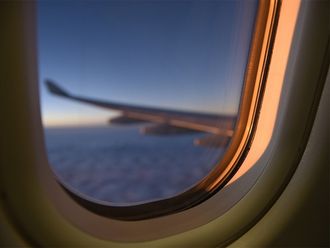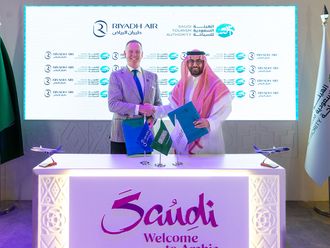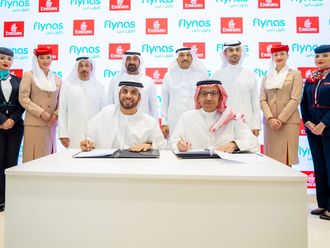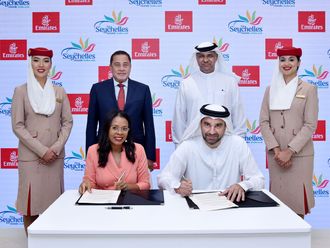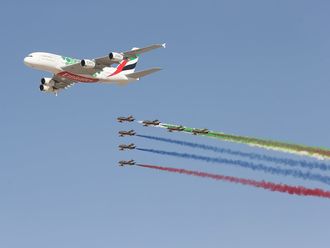Dubai: Boeing Co. is hopeful the United States government will not change its policy of allowing foreign airlines to fly freely to the country, despite calls to do so from the US’ largest carriers this year.
The US plane maker is caught in the middle of back-and-forth tit-for-tat that started with United, Delta, American asked the US government earlier this year to put a freeze Emirates, Etihad Airways and Qatar Airways from launching any more flights to the country.
“We’re very hopeful the governments will continue to work together to create an open skies frame work,” Dennis Muilenburg, President and Chief Executive of The Boeing Company told reporters on Monday at the Dubai Airshow.
“We see free trade and freedom of the skies as key economic enablers and we see that as good for our airline customers here in the Middle East and in the US,” he said.
The US airlines allege the Gulf carriers are unfairly state subsidised, to the tune of $42 billion (Dh152.4 billion) over the past decade, and want their claims investigated. They have also asked traffic rights agreement with the United Arab Emirates and Qatar, which allows the Gulf carriers to fly to any point in the US, to be renegotiated. The Gulf carriers have consistently denied the allegations.
A closing of US skies to the Gulf carriers, three of the world’s fastest growing airlines, could be damaging to Boeing who have billions of dollars of aircraft on back-order to Emirates, Etihad and Qatar Airways. A total of 560 aircraft on order with Boeing are from Middle East airlines. But US carriers are also major customers and claim the Gulf airlines are damaging the US aviation industry.
Muilenburg said there had been some uncertainty among Middle East airlines in ordering wide-body aircraft, which he said was mainly associated with weak cargo growth and uncertainty over the future of the US’ Ex-Im Bank.
But Muilenburg said Boeing Co. remains “very bullish about aerospace growth”. It estimates the Middle East will need 3,180 new aircraft over the next twenty years to 2034, with 60 per cent needed for growth and 40 per cent for replacement. Rival Airbus said on Monday the region will need 2,460.
Boeing Co. also sees strong demand for defence sales in the Gulf countries into the next decade. Muilenburg said there will likely be significant sales of fighter aircraft, transport aircraft and helicopters to region governments. He said military purchases in the region in the next decade will likely be driven for the same reasons as today; regional conflict and countering Iran.


